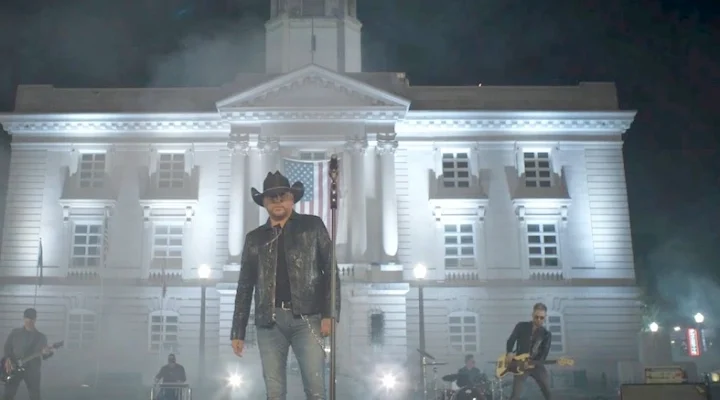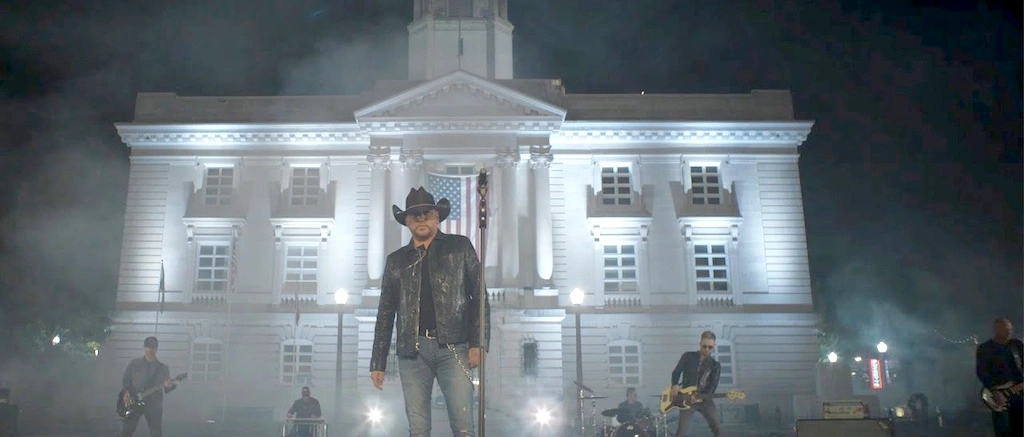A small radio rested in my grandmother’s kitchen — one of those gadgets stained by time and the touch of hands that saw a day’s labor before sunrise. On it played nothing but Country Gold.
As pintos simmered on the back eye of the stovetop, the Oak Ridge Boys inched us closer to lunch. Alabama’s “There’s No Way” mixed right in with the cornmeal. And Marshville’s own Randy Travis gave us something cool to listen to during the summer of 1986.
Last night, I dug your picture out from my old dresser drawer.
I set it on the table, and I talked to it ’til four.
I read some old love letters right up ’til the break of dawn.
Yeah, I’ve been sittin’ alone, diggin’ up bones.
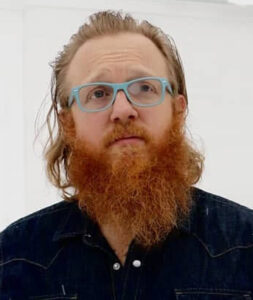
Justin Cox
We’d listen to Randy and other salt of the earth saints until Maw-maw’s “stories” came on in the early afternoon, and we found ourselves shoved gently outside. As I got older, I drifted away from country music, ashamed of how it made me feel or how it made others feel about me. Sure, we watched Hee Haw, but I tried hard not to sound like Roy Clark and Minnie Pearl.
As I got older, the idea and identity of country music changed. The business of Nashville went full-blown mainstream. Pop producers replaced the troubled troubadours of the destitute. Polished tunes pandering to the masses did little to convert me. A mantra of “sell, sell, sell” replaced those reconciling hymns working out why some humans have to live like dogs.
Years passed before I finally accepted a homecoming call courteous of those old Outlaw voices. Those who touched on eschatological matters sang of the human condition’s depth, struggle and beauty. Some penned songs that would have fit nicely into a pew hymnal. They brought me back and turned me toward the next generation of musicians dealing with the lowly, the lonely and those made to feel inferior because of where they came from — a class of people associated with a particular landscape consisting of street lights and horses in equal supply.
I’m talking about small towns.
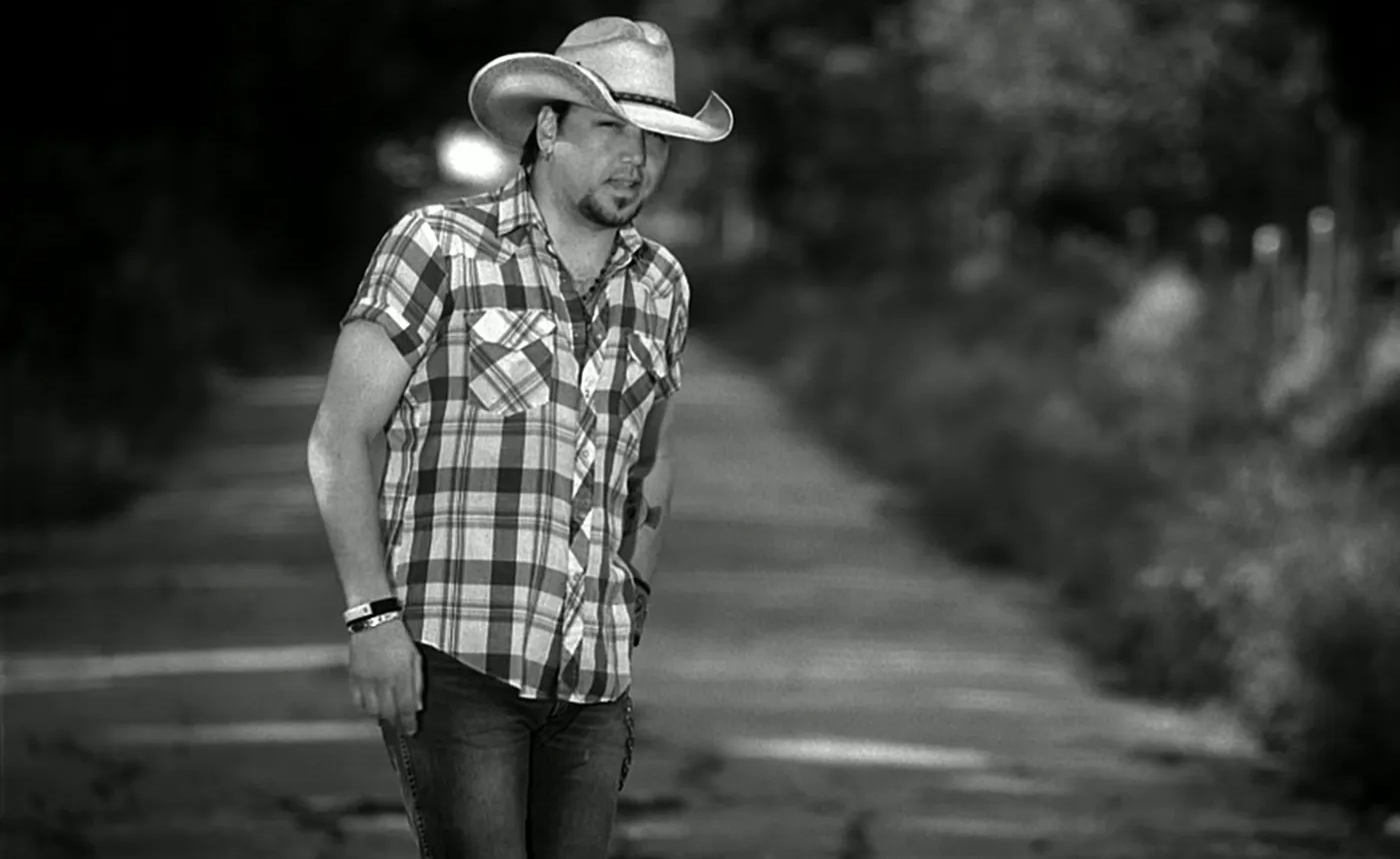
Jason Aldean (Photo: BMG)
There’s been an awful lot of talk about small towns lately, especially in country music.
Last week, entertainer Jason Aldean caught fire with his single “Try That in A Small Town.” Released in May, the song didn’t become the talk of social media until the music video dropped just over a week ago. Since then, a divided nation of listeners continues to widen the chasm from one another, letting loose words of support or outrage toward Aldean.
Under pressure, Country Music Television pulled the video, which pushed the song’s popularity. As of the writing of this article, the video has reached more than 12 million views on YouTube.
What garners all this attention? Well, for the uninitiated, the video depicts violent altercations between law enforcement and civilians in urban locations: convenience store robberies and department store lootings, buildings set on fire, and tear gas raining down from above on any and all not complying with white conformity.
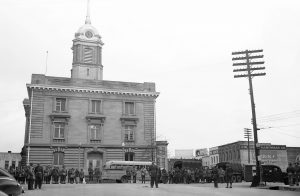
Officers are on guard in Public Square in Columbia, Tenn., after an outbreak of rioting, Feb. 27, 1946. The Maury County courthouse is in background. (AP Photo)
In the video, these images play on the backdrop of the Maury County Courthouse in Columbia, Tenn. — a place with a history. A race riot erupted there in 1946. The slaying of a child of God, 18-year-old Black teenager Henry Choate, at the hands of a mob took place there in 1927.
I wish I could say the Maury County Courthouse was one of a few halls of injustice in the South where detestable acts of hate occurred, but it isn’t. Too many small towns and their government buildings house similar stories.
“Whether Aldean or his team of producers knew this history is debatable. What isn’t, however, is they don’t seem to care now that they know.”
Whether Aldean or his team of producers knew this history is debatable. What isn’t, however, is they don’t seem to care now that they know.
Needless to say, the video conjures all sorts of feelings. When not depicting metropolitan areas as new Babylons, the lyrics written by Kelley Lovelace, Neil Thrasher, Tully Kennedy and Kurt Michael Allison (yes, let it not be lost that Aldean didn’t even write the song he is adamantly defending) accompany picturesque propaganda.
Backyard football games, duck hunting and families standing beside classic roadsters appear as if you’re watching an old home movie.
Cuss out a cop, spit in his face.
Stomp on the flag and light it up.
Yeah, ya think you’re tough.
Baseball games, hopscotch and a group of farmers supporting one another flash in a series of slides Dinesh D’Souza and Dr. Brodsky from A Clockwork Orange would be proud of.
Got a gun that my granddad gave me
They say one day they’re gonna round up.
Well, that shit might fly in the city, good luck.
Scenes flash with a message pointing to a reinforced truth that our country was great while under the banner of white America’s idea of heaven. What happens to those that challenge this truth?
Well, try that in a small town.
See how far ya make it down the road.
Around here, we take care of our own.
You cross that line, it won’t take long.
For you to find out, I recommend you don’t
Try that in a small town.
In short, fool around and find out. Don’t think it won’t happen to you if you step out of line. Find yourself in a small town where a group of folk has all the power and calls all the shots, do things the way they believe should be done, where they don’t feel the need to entertain outside agitators. You’ll find out the way others have.
Those like James Chaney, Michael Schwerner and Andrew Goodman. Student activists who worked in Neshoba County during the summer of 1964.
Murdered in the small town of Philadelphia, Miss.
Those like Matthew Shepard. Abducted by two men. Tied to a fence post, severely beaten, left to die.
Murdered in the small town of Laramie, Wyo.
Those like Emmett Till, a child kidnapped from his relative’s home.
Lynched. Murdered in the small town of Drew, Miss.
I could keep going. There are too many like James Byrd Jr. (murdered in Jasper, Texas).
Too many like Jonathan Daniels (murdered in Haynesville, Ala.).
Too many like Carol Jenkins (murdered in Martinsville, Ind.)
Unlike Aldean and most of the songwriters who wrote “Try That in A Small Town,” I grew up in a small town. Yes, there was a sense of community there. Folks did try and help one another during hard times. All that is true, but the promise of violence always was present — hidden behind masks of civility.
As a child, I saw those masks and sheets when the KKK marched and handed out flyers in the heart of Kernersville, N.C. Later, I would learn who they were, what they did and that some behind those masks lived in my small-town community. People like that live in big cities and small towns.
Whether Aldean wants to sing a song about such facts is something we will have to hold our collective breath to see.
If he does, might I suggest his songwriters go for a more accurate title to fit their lyrics; “Try That in A Sundown Town.”
Justin Cox received his theological education from Campbell University and Wake Forest University School of Divinity. He is an ordained minister affiliated with the Cooperative Baptist Fellowship and enrolled in the doctor of ministry program at McAfee School of Theology. Besides reading, spending time in the kitchen and amateur gardening, Justin spends time with his spouse, Lauren, and their two daughters. He began his tenure as senior pastor of Second Baptist Church in Suffield, Ct. in August. Find his ramblings at blacksheepbaptist.com.

